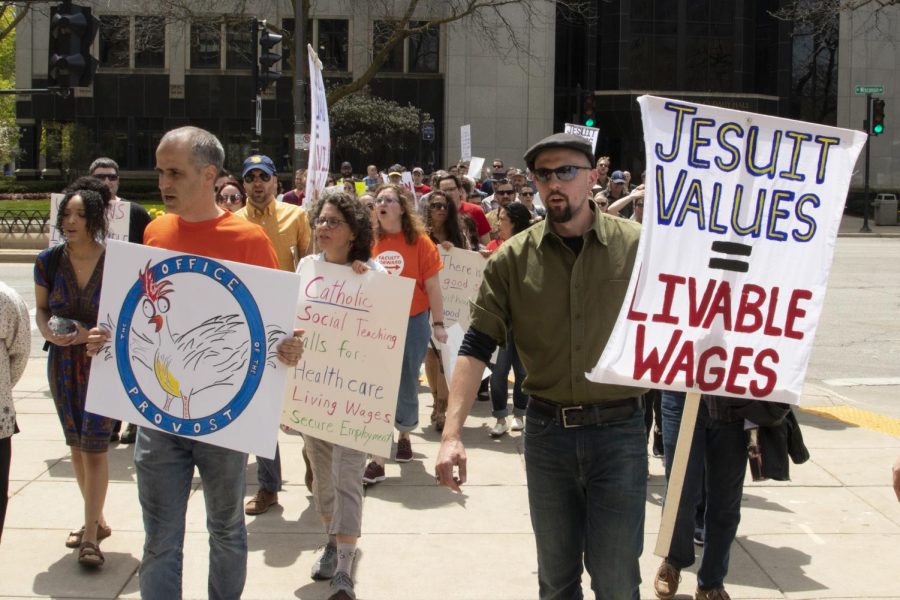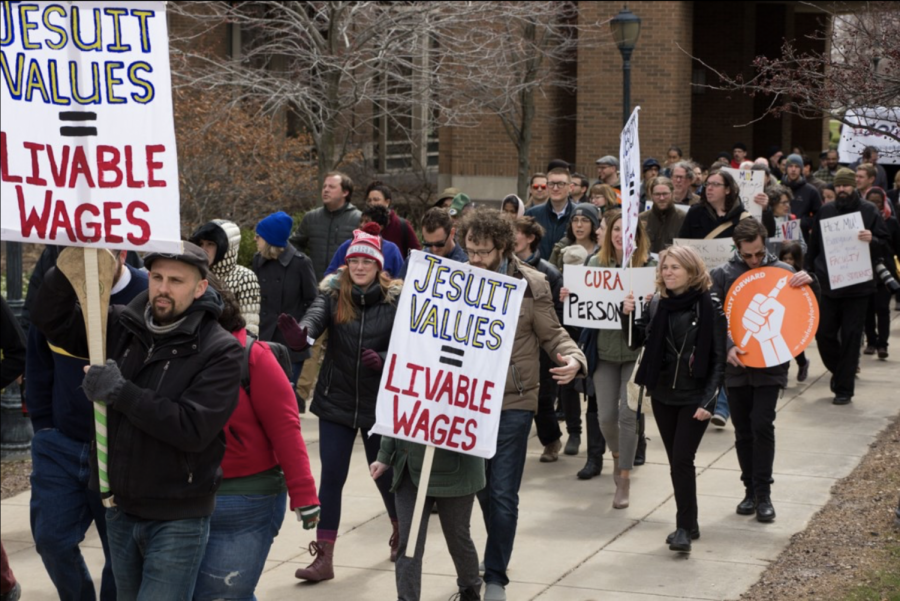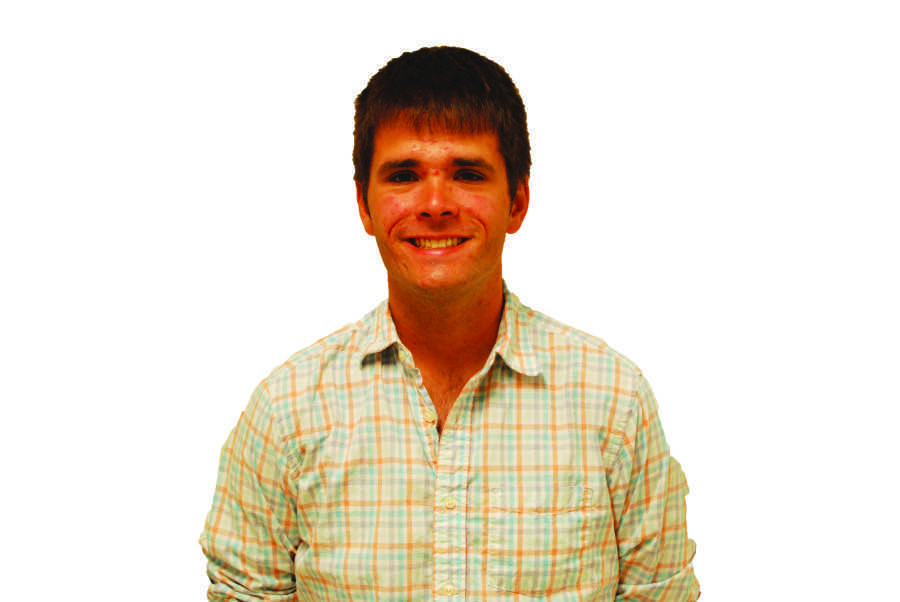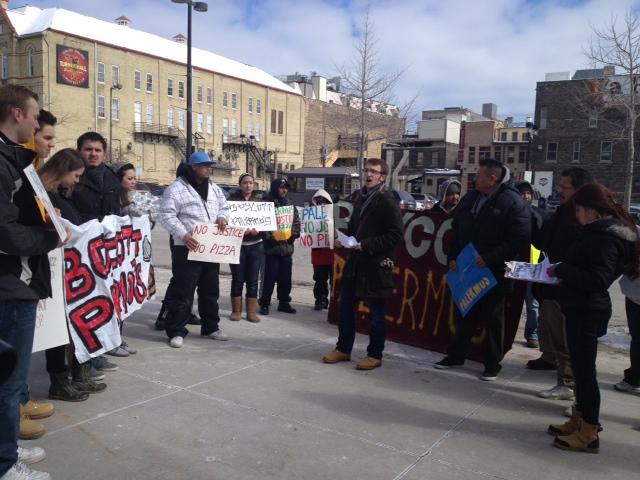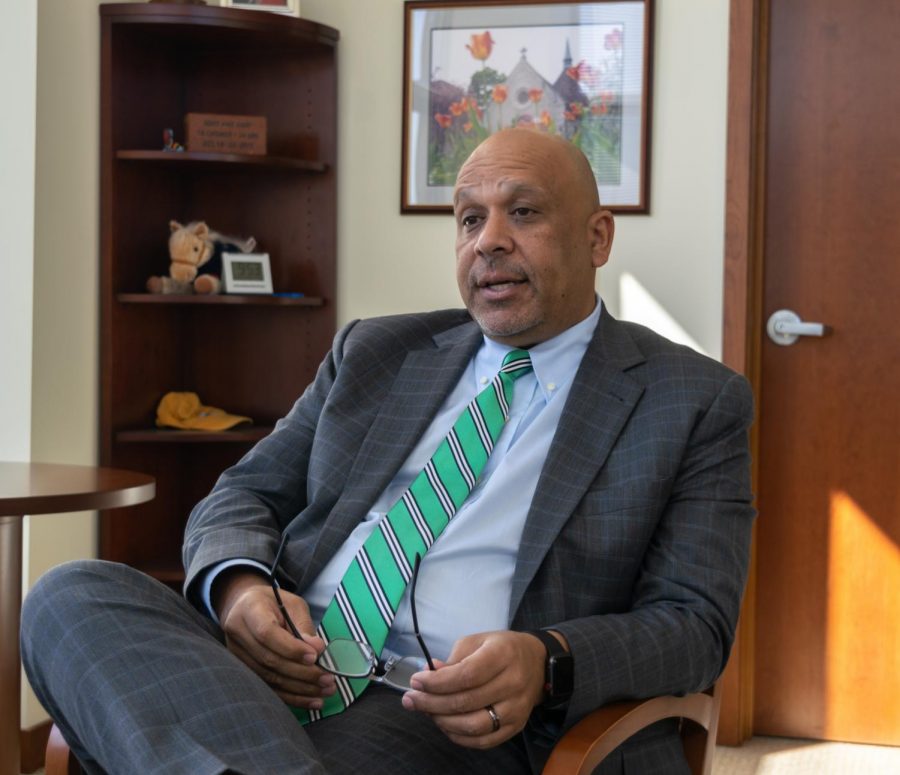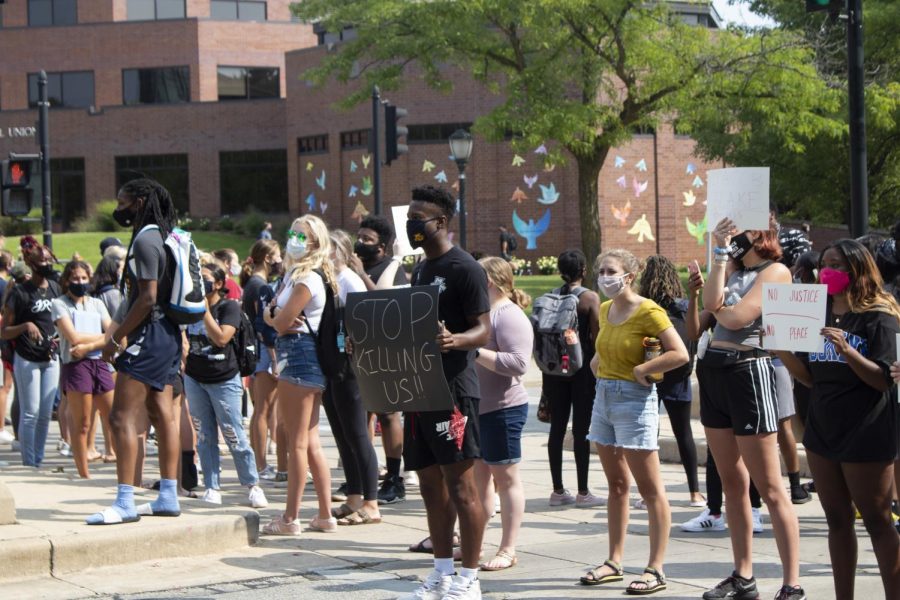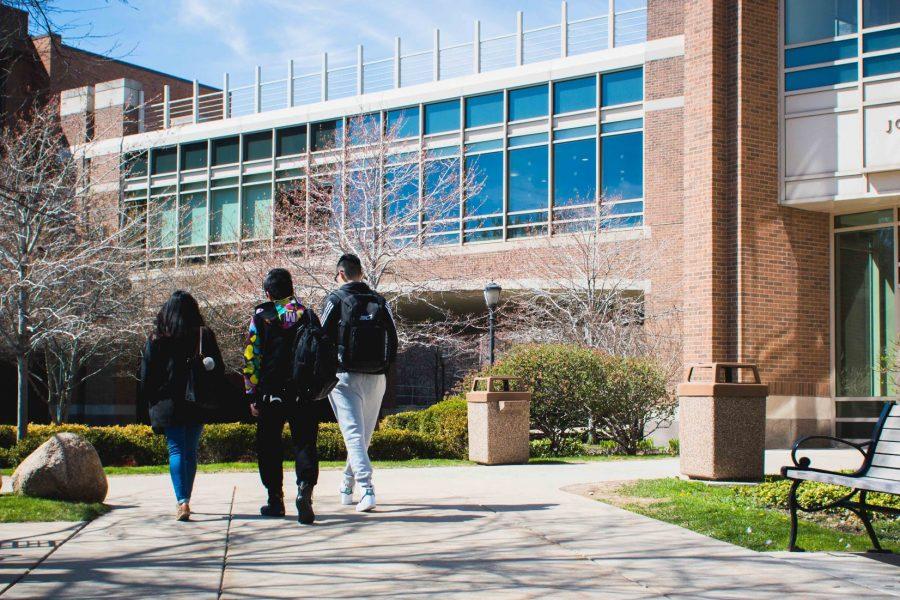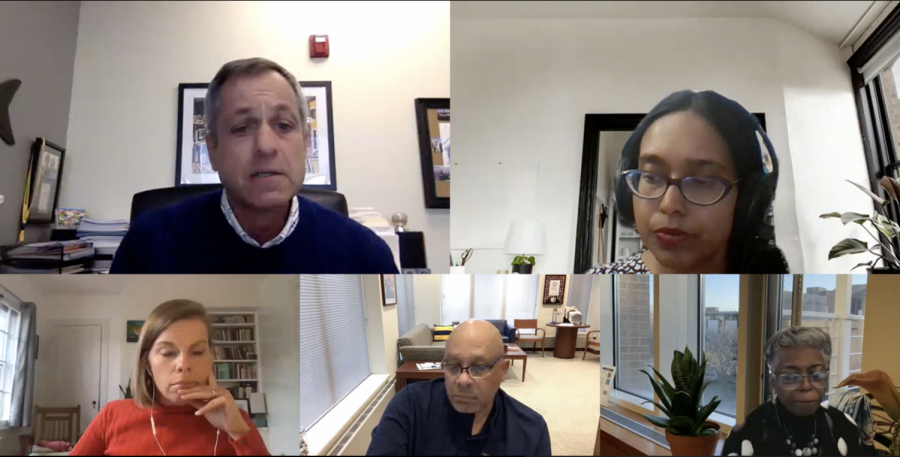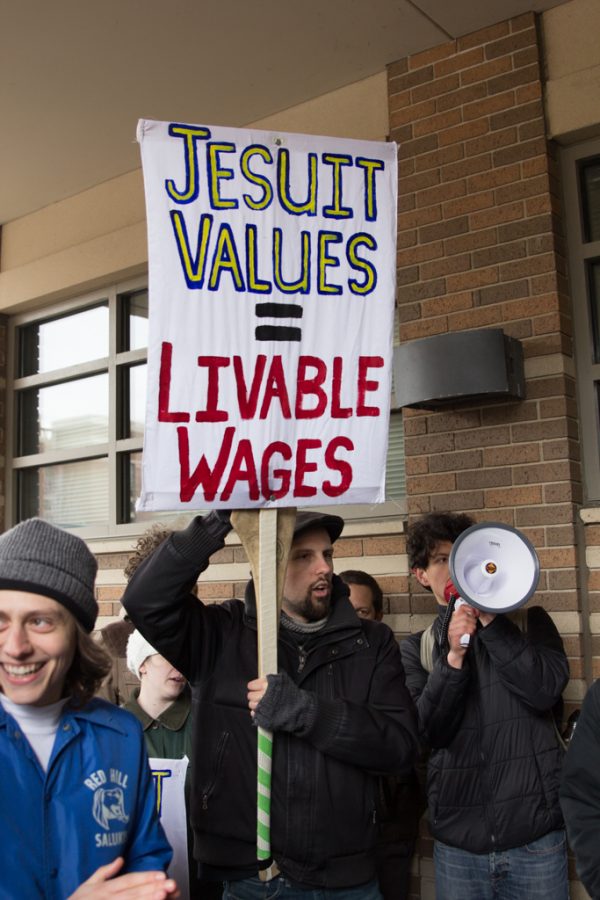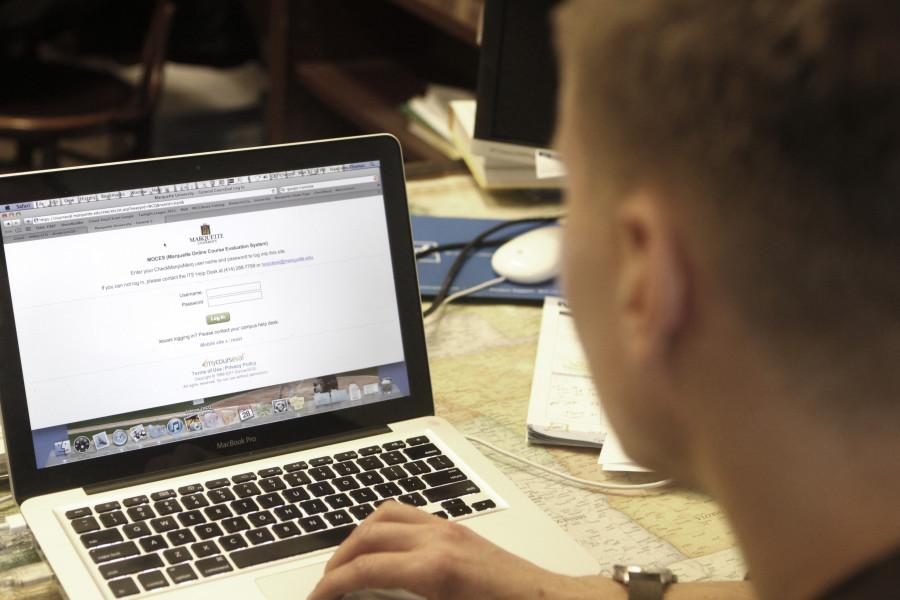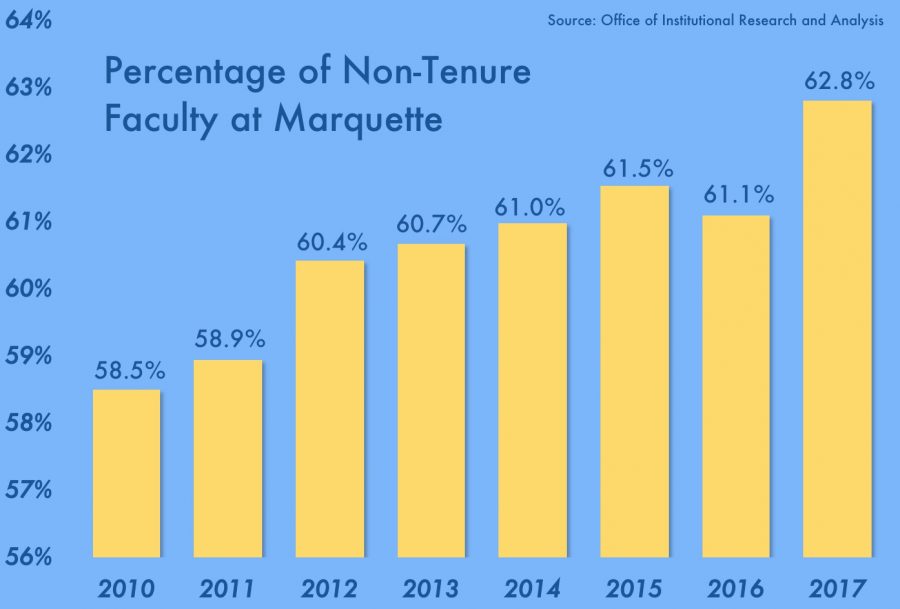Marquette University faculty, staff and community members rallied this afternoon for a fair process to form a union.
They began at the Father Marquette statue and then moved to Zilber Hall.
Acting Provost Kimo Ah Yun said the university will recognize the union if it wins an election or gains majority support, as required in federal law.
However, non-tenure-track faculty at the event said university administration has not engaged them in an effort to ensure a “fair, democratic process.”
“All we want is a democratic process for voting on whether or not we as workers want to unionize,” Sam Harshner, an adjunct instructor in the College of Arts & Sciences who is spearheading the effort, said. “What the administration is refusing to do is say, ‘OK, we’re not going to obstruct that.’”
Protesters chanted for Ah Yun to sign a paper ensuring there is a fair, democratic process with no interference from university administration.
“I could send out an email, and then it’s being said that’s an example of hindering,” Ah Yun said. “We will align with federal law. We will stay within what the federal law and National Labor Relations Board has said you need to do. That’s consistently been our position. We support a fair process.”
Harshner said the steps non-tenure-track faculty is asking for include avoiding classifying non-track faculty as “agents of the church” and graduate workers as students. Both classifications would disqualify unionization.
“We’re engaging in a democratic election to decide if we as workers want a union or not; we’ll abide by whatever that election says,” Harshner said. “What we’re asking them to do is not throw up all these roadblocks and hurdles.”
Ah Yun declined to sign the paper but said he was “committed to a fair process, as outlined in federal law.”
He told the group, “federal law is meant to protect everyone,” in justifying his stance. Protesters chanted “shame” as he walked into the elevator.
Other chants included, “Sign it, Dean Kimo, or you will have to go,” and, “No more suppression, we need a fair election.”
Many tenured faculty offered support at the event, including Phillip Rocco, an assistant professor in the political science department who has teaching assistants and research assistants.
“I can’t in good conscience supervise them and not look after their best interests,” Rocco said. “That’s what ‘cura personalis’ means to me.”
Rocco’s path to becoming tenured faculty included being a member of a graduate worker union at the University of California-Berkeley, which is part of the reason for his support.
He said the current process hurts Marquette’s ability to become a “Research I” university, as outlined in the Carnegie Classifications of research universities.
“You can’t be a Research I university without thinking about that seriously,” Rocco said.
Service Employees International Union must secure signatures from 30 percent of non-tenure-track faculty for the National Labor Relations Board to hold an election.
If more than 50 percent of the bargaining unit signs authorization cards, Marquette can either recognize the union or ask the National Labor Relations Board to conduct an election.
Harshner said he doesn’t want to engage in any “formal process” until university administration guarantees a fair process without “bureaucratic hurdles and legal challenges.”
University spokesperson Chris Stolarski said the university does not believe unionization is in the “community’s best interests.”
“We do not believe that a union representing a subset of our faculty is in our community’s best interests,” Stolarski said in an emailed statement. “In the meantime, our efforts are focused on continuing to listen to faculty concerns, which includes the formation of the Participating Faculty Task Force.”
Calls for a strike Wednesday were greeted with strong applause, and Rocco said he would support any measures the “people who are organizing democratically” decide to take, including a strike.
Harshner said, however, they do not intend to strike.
“They’re just putting everything on the table (in a forum),” Harshner said. “I wouldn’t say we’re at that point by any stretch of the imagination. … We honestly don’t know what’s going to happen one day or the next.”
It’s the third major protest on campus in a six-week span. Protesters also gathered April 12 and May 1 in front of the Father Marquette statue. A small group also demonstrated May 4 at the Archdiocese of Milwaukee’s 175th anniversary celebration.
Harshner said the next steps are still up in the air.
“We’re hoping the administration will hear our voices and will come down and sign a paper allowing us to have a democratic process,” Harshner said.

